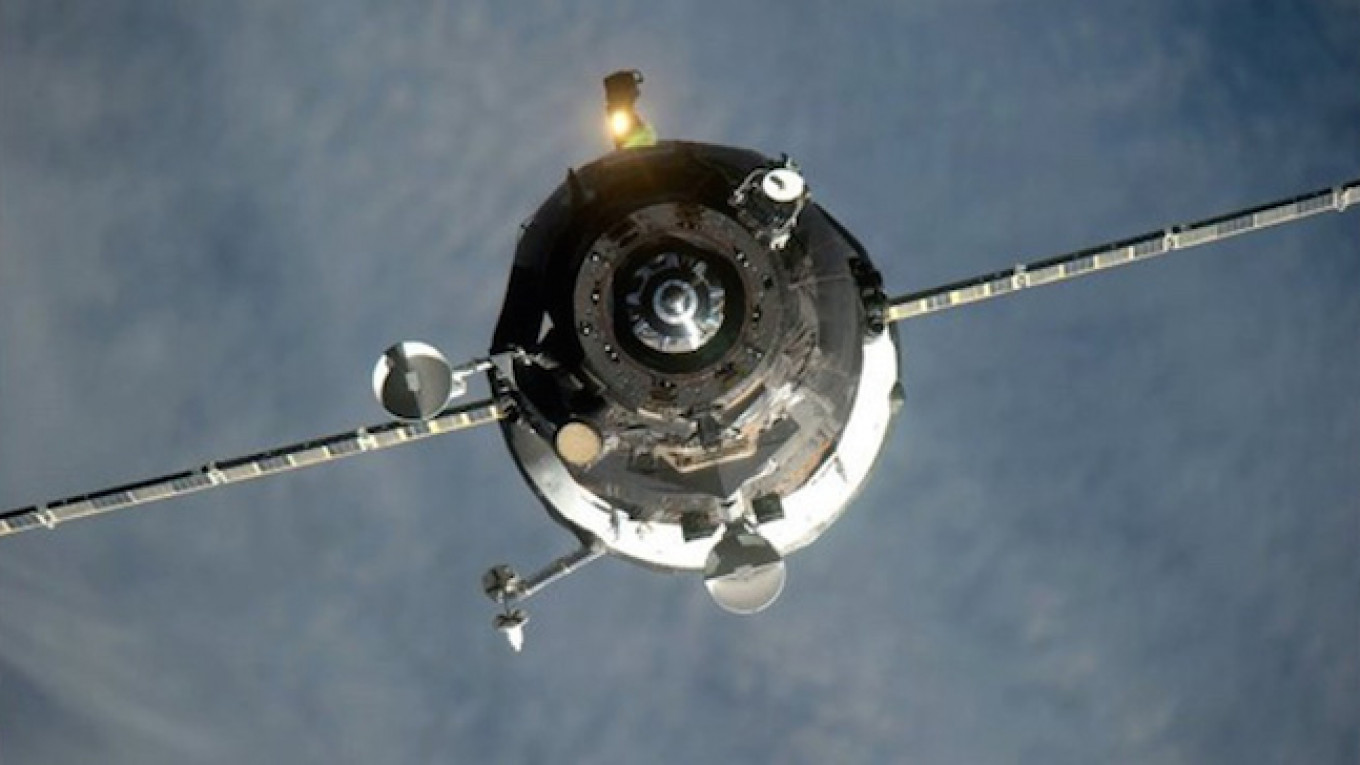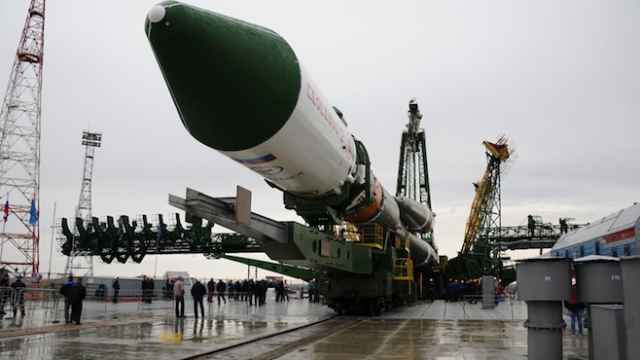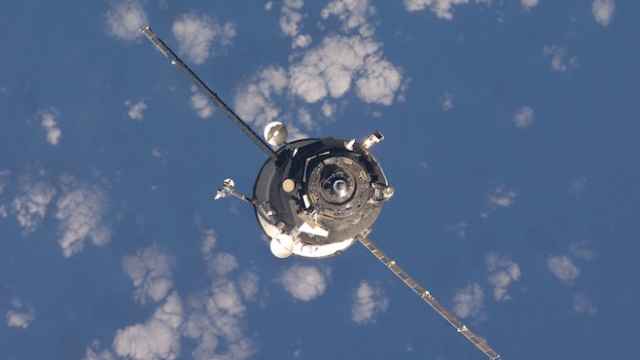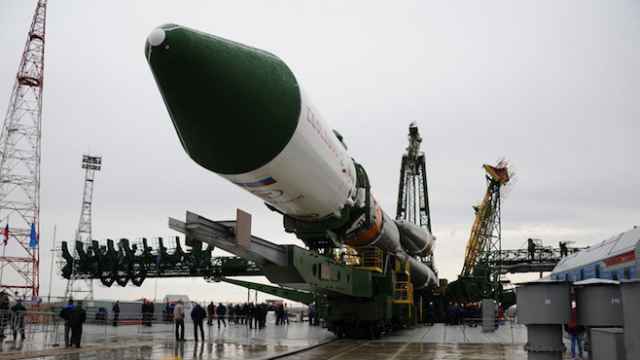An unmanned Russian spaceship loitering in orbit after a failed cargo run to the International Space Station plunged into Earth's atmosphere on Thursday, the Russian space agency reported.
The capsule, loaded with more than three tons of food, fuel and supplies for the station crew, fell from orbit at 5:04 a.m. Moscow time, the Russian space agency Roscosmos said in a statement.
At the time, the Progress-59 spacecraft was flying over the central Pacific Ocean, the statement said.
Most of the spacecraft was expected to burn up during its high-speed descent through the atmosphere, but small pieces of the structure could have survived and splashed down in the ocean.
"Only a few small pieces of structural elements could reach the planet's surface," Roscosmos said in a statement earlier Thursday — similar to what happens at the end of routine Progress cargo missions.
The freighter was launched on April 28 from the Baikonur Cosmodrome in Kazakhstan, but never made to the station, a $100 billion research laboratory that flies about 250 miles (418 km) above the earth.
Ground controllers lost contact with the Progress spaceship shortly after it separated from the upper-stage of its Soyuz rocket about nine minutes after launch.
An investigation into the failed mission is under way, Roscosmos said. Russia has flow 62 Progress spacecraft to the station to deliver modules and cargo, two of which have not been successful.
Various versions of the Progress freighters have been flying since 1978, supporting previous Soviet-era stations including Salyut 6, Salyut 7 and Mir. The capsules are designed to burn up in the atmosphere after delivering their cargo.
The United States hired privately owned Space Exploration Technologies, or SpaceX, and Orbital ATK to fly cargo to the station after the space shuttles were retired in 2011. SpaceX's missions have all been successful.
Orbital lost a cargo ship in October after a failed launch. Europe flew five ATV freighters to the station, all successfully, but has no plans to fly any more. Japan is preparing for its fifth HTV cargo flight in August.
A Message from The Moscow Times:
Dear readers,
We are facing unprecedented challenges. Russia's Prosecutor General's Office has designated The Moscow Times as an "undesirable" organization, criminalizing our work and putting our staff at risk of prosecution. This follows our earlier unjust labeling as a "foreign agent."
These actions are direct attempts to silence independent journalism in Russia. The authorities claim our work "discredits the decisions of the Russian leadership." We see things differently: we strive to provide accurate, unbiased reporting on Russia.
We, the journalists of The Moscow Times, refuse to be silenced. But to continue our work, we need your help.
Your support, no matter how small, makes a world of difference. If you can, please support us monthly starting from just $2. It's quick to set up, and every contribution makes a significant impact.
By supporting The Moscow Times, you're defending open, independent journalism in the face of repression. Thank you for standing with us.
Remind me later.






